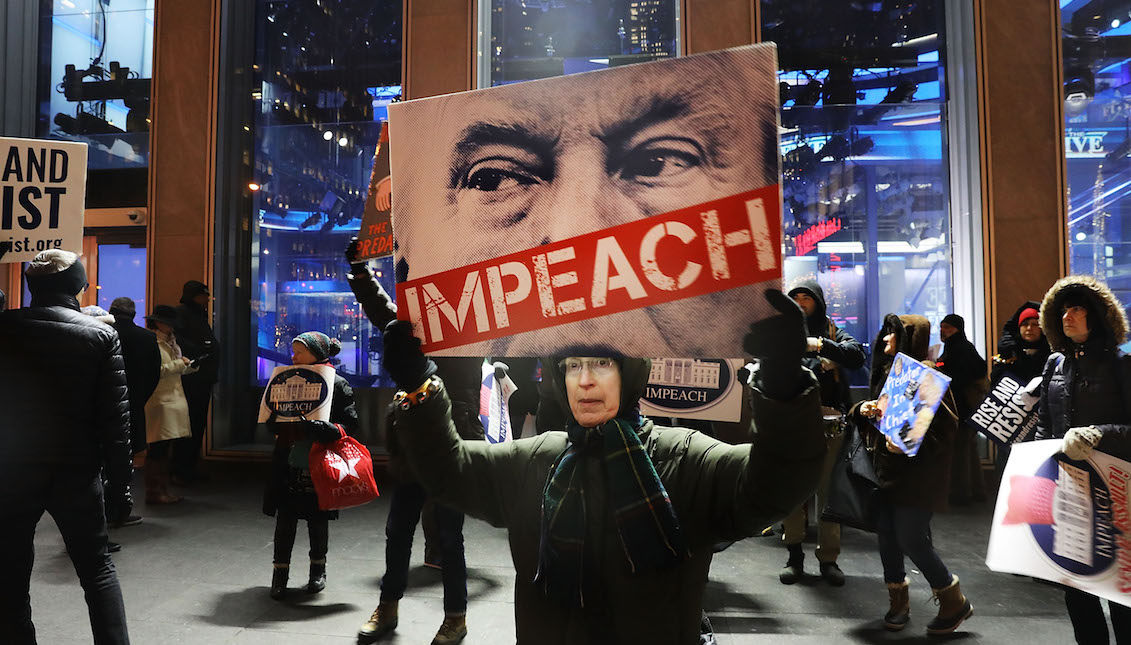
Can Trump be impeached?
This is the decision to be taken by the Democratic Party in the coming days, after having assessed the Mueller Report that detailed several circumstances in…
Much of the American legal system is based, like any legal system of common law, on precedents. That is legal cases that establish a principle or rule.
This means that every sentence, every decision of a judge, is sculpting how the law applies to U.S. citizens.
The same applies to a sitting president.
After the detailed and systematic evidence compiled by the special counsel Robert Mueller, and after two years of investigation and multiple interviews, there is the possibility that President Donald Trump has, at least, tried to break the law by obstructing justice.
Being the majority in the House of Representatives, the Democratic Party now has in its hands the decision to initiate or not an impeachment procedure against the president because, if not, they would set a legal precedent that would open a range of possibilities for future presidents to circumvent the law.
"Congress’ failure to impeach would set a dangerous precedent and imperil the nation as it would vest too much power in the executive branch and embolden future officeholders to further debase the U.S. presidency, if that’s even possible," said the member of the Financial Services of the Chamber, Maxine Waters, in a statement after the publication of the report.
Other members of the Party, such as Representative Norma J. Torres or Senator and presidential candidate Elizabeth Warren have declared themselves in favor of impeachment against Trump, but their voices may not be enough among their Democratic colleagues.
As the Washington Post explained, the case of impeachment against the president "is a moral and legal one."
In other words: it could affect the presidential election of 2020, and that is a risk that the Democratic Party may not be ready to take.
RELATED CONTENT
The specific condition is, therefore, the perception of the American people regarding the work and character of President Donald Trump, and whether the balance of public opinion is tilted in favor of or against a democratic "revolt" against the head of state.
A survey conducted by the Post during the past month showed that half of the adults interviewed assured the report will not determine who they will vote for next year's elections, and the priorities of the electorate remain in medical care and access to job opportunities.
The leadership of the Party, represented by House Speaker Nancy Pelosi, would be therefore taking into account the effect of the attempted impeachment against Bill Clinton in 1998, which reversed the balance in favor of the GOP in the parliamentary elections, explained Politico.
The decision, although not taken lightly, may be revealed after the Democratic conference call on Monday.
For his part, and after praising the work of Mueller when his Attorney General gave him to understand that he was "exonerated,” Donald Trump has unleashed a string of comments on Twitter about his assessment in this regard again.
"Only high crimes and misdemeanors can lead to impeachment," the president wrote in his account. "There were no crimes by me (no collusion, no obstruction), so you can’t impeach. It was the Democrats who committed the crimes, not your Republican president! Tables are finally turning on the witch hunt!"
Trump refers to findings on the Mueller report in which the Obama Administration was aware of the Russian cyber campaign long before the 2016 elections.
However, the section of the investigation that could lead him to the bench has nothing to do with the Russian cyber attack per se, but with how his campaign took advantage of it and his clear intentions to obstruct an investigation on this matter.










LEAVE A COMMENT: